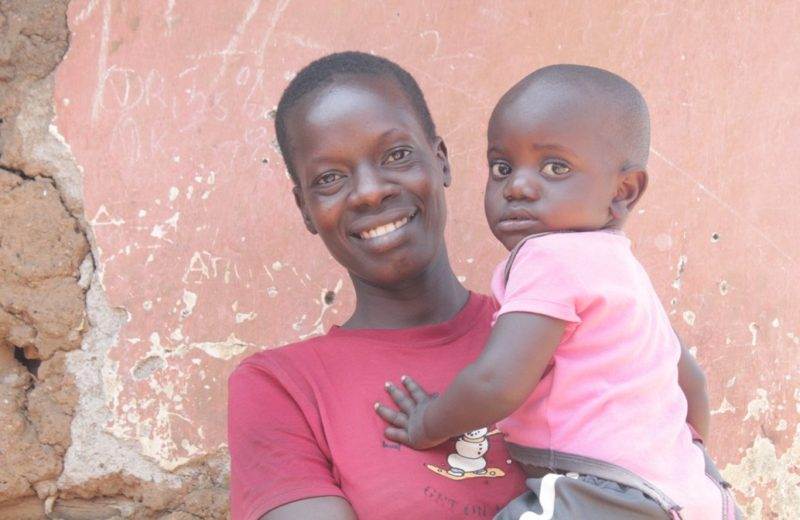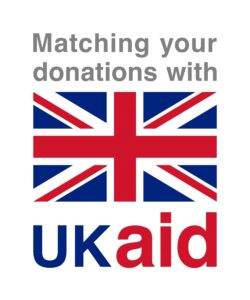Safe Pair of Hands has come to an end after three successful years. The project improved access to clean water, handwashing facilities and improved hygiene practices for families living in informal settlements in Kisumu, Kenya.
The project was funded through an appeal launched in 2017 in which every donation was matched pound for pound by the UK Government. The appeal raised over £1 million, with the matched funds going directly into the project, which started in August 2018.
Kisumu is Kenya’s third largest city and access to clean, safe water and decent sanitation is a challenge. Many people live in informal settlements where the situation was dire. The toilets that were available were used by many households and were in poor condition, they also lacked handwashing facilities. Diarrhoea and other water borne diseases were a huge problem, especially in children. Repeated bouts of diarrhoea can cause malnutrition in children under five, causing stunting and wasting.
Thanks to the generosity of the British public and the UK government, we were able to support thousands of families living in Kisumu and the project will have a lasting impact.
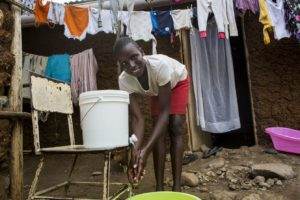
Imelda washes her hands at her home
Improved water access
Over the three years the project extended water supply pipelines by 18.5Km, improving water access to 3,966 households and benefiting 19,830 people. This has led to:
- A reduction in water costs for households
- A reduction in the time spent by women and girls fetching water due to there being more water points closer to their homes.
Improved handwashing facilities for carers and young children
The project worked closely with Early Childhood Development Centres to ensure that children under five and their carers were being reached. All 43 centres had handwashing stations fitted so children attending the centres could wash their hands. 3,001 children now have access to these facilities and their teachers have been trained to make soap for the school, saving vital funding and ensuring all pupils properly wash their hands.
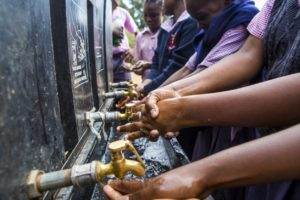
Improved handwashing facilities in a school in Kenya
Behaviour change
Developing understanding and sharing knowledge of the importance of handwashing and improved hygiene was a key part of the project. Diarrhoea and other water borne diseases are often caused by cross contamination and poor hygiene.
Through building relationships with local health workers, organisations and communities, the project was able to successfully change the behaviour of people living in informal settlements. Training of Health Volunteers and Teachers ensured distribution of vital information. This was done in various ways:
- Wall murals, comic books, posters and teacher-led health education sessions in centres and schools
- Radio talk shows
- Hygiene promotion and training sessions
- Home visits by Community Health Volunteers
- Poster and leaflets distributed to communities
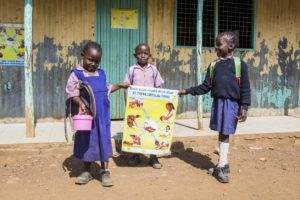
Children at a school in Kenya present a poster detailing improved hygiene practices
